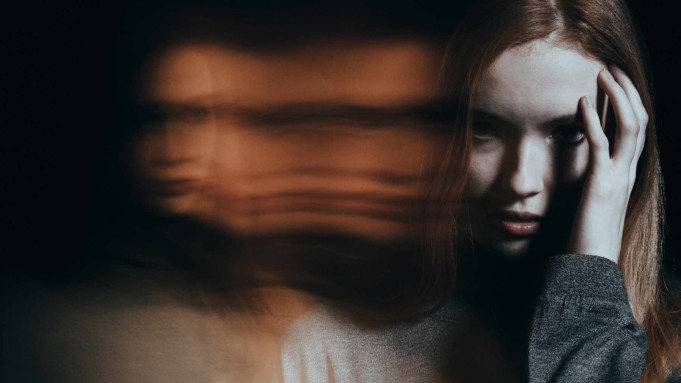We may sometimes perceive things that are not there. It could be hearing voices that no one else can hear or see things move just out of the corner of your eye.
These experiences may appear real to you but are the product of your mind and can affect all your senses. These experiences are known as hallucinations.
Hallucination is derived from the Latin word “alucinari” which means to ‘wander in the mind’. A hallucination is a perceived experience in the absence of an external stimulus that has qualities of a real experience.
It involves seeing, hearing, smelling, feeling, and even tasting things that are not there. Although often attributed to mental illness, hallucinations are common in healthy people as well.
According to a study carried out in Europe in 2015, about 7.3 percent of people reported hearing voices all through their lives. Hallucinations may be caused by mental illnesses such as schizophrenia, drug abuse, head trauma, or a nervous system disorder like epilepsy and Parkinson’s disease.
If you or a loved one has frequent bouts of hallucinations, you must see a doctor. Certain medications can be used to treat them, but therapy mostly depends on what triggers the hallucinations.
Types of Hallucinations
Hallucinations can affect any of your senses and body sensations. Below are different types of hallucinations.
Auditory hallucinations
These are the most common types of hallucinations. You can hear voices coming from both inside and outside your mind. You might also hear someone speaking to you and telling you to do things.
You may pick an imagined tone for the voice, whether cold, angry, sad, or warm. Another example is hearing repeated sounds like scratching on the wall or someone walking up the stairs.
Auditory hallucinations may be caused by drug use, psychosis, bipolar disorder, or schizophrenia.
Visual hallucinations
These hallucinations involve seeing things that are not there. They may be symbols, objects, people, animals, visual patterns, or lights.
For example, you may see insects crawling up the walls or on your face or someone you know. Or you may see flashing lights no one else can see or movement by the corner of your eyes.
Visual hallucinations may be caused by damage to the brain tissue, schizophrenia, irritation of the visual cortex, dementia, depression, seizures, and bipolar disorder.
Olfactory hallucinations
Olfactory hallucinations, also known as Phantosmia, have to do with your sense of smell. You may smell an odor that is not really there.
Olfactory hallucinations are distortions of one’s sense of smell and usually go away on its own. They can occur as a result of conditions such as migraines, head trauma, nasal polyps, strokes, nasal infections, dental problems, or brain tumors.
They can also be caused by exposure to certain chemicals such as insecticides or solves. Olfactory hallucinations are also a symptom of mental disorders such as bipolar disorder, depression, or withdrawal.
Tactile hallucinations
They are also known as somatic hallucinations and involve your sense of touch. It could be a feeling of being tickled when no one is around you, bugs crawling under your skin, or your intestines moving around your body.
Tactile hallucinations could occur as a result of schizophrenia, hallucinogens, alcohol, Alzheimer’s disease, Parkinson’s disease, or Lewy body dementia.
Gustatory hallucinations
These are similar to olfactory hallucinations; they, however, involve your sense of taste instead of smell. The tastes are weird and unpleasant and often occur with a metallic tinge. Some common causes of olfactory hallucinations are epilepsy and diseases of the sinus.
Causes of Hallucinations
There are many factors and medical conditions responsible for causing hallucinations. Some of these include;
Mental illness
Schizophrenia, bipolar disorder, depression. These are some of the mental illnesses that can cause hallucinations. Schizophrenia, the most common cause of hallucinations, is a mental illness that changes the way a person behaves or thinks.
It can cause psychosis, which makes the sufferer lose touch with reality.
People living with depression may experience brief periods of hallucinations, which are often related to the emotions the person is feeling at that moment. For instance, the person may experience hallucinations that someone is telling them they should not have been born.
A person with bipolar disorder may hallucinate during their manic episodes.
Drugs
Hallucinogens are drugs that can induce hallucinations. They work by briefly changing the chemistry of the brain, which in turn affects the central nervous system and how it processes and sends information, thereby causing abnormal thoughts and experiences.
Some examples of drugs that can induce hallucinations are cannabis, LSD, and certain mushrooms.
Withdrawal
Withdrawal from certain substances, especially alcohol, can induce hallucinations. This is most common in people who experience severe withdrawal syndrome known as delirium tremens.
Dementia
Dementia such as Alzheimer’s, Lewy Body, and Vascular dementia progressively damages parts of the brain responsible for thinking, reasoning, and motor functions. People in the mid to late stages of dementia may experience visual and auditory hallucinations.
For example, older people with senile dementia may see a long lost friend. Some episodes of hallucination may be frightening and trigger feelings of panic, anxiety, and paranoia that can make it difficult to be catered to by their caregivers.
Migraines
Sometimes, migraines may trigger hallucinations. These may occur at the onset or during a migraine. These hallucinations are often visual and may involve seeing spots or bright flashes of colors that are not there.
Seizures
A person may sometimes experience hallucinations during or after a seizure.
Sleep disorders
Hallucinations may occur as someone is falling asleep or waking up. Theses are known as hypnagogic hallucinations and hypnopompic hallucinations. A person may experience hypnagogic hallucinations while falling asleep.
Hypnopompic hallucinations, on the other hand, occur while a person wakes up. These two hallucinations are very common.
In some cases, hallucination may occur along with an episode of sleep paralysis. This happens when a person wakes up and is temporarily unable to move.
Disabilities
People with visual or hearing disabilities may experience hallucinations. This may be as a result of the changes that occur in the parts of the brain responsible for processing visual and auditory information.
When do you see a doctor?
If you suspect that you or a loved one’s perception is not real, the best thing to do is to call the doctor immediately. Your doctor will ask about your symptoms and perform physical tests to confirm a diagnosis.
Other tests, such as blood tests, brain scans, or urine tests, may also be performed.
Constant supervision is required for people who are hallucinating. In severe cases, these hallucinations may trigger panic, fear, and paranoia that may put them or their loved ones in danger.
Hallucinations are very common. Although they may be terrifying, they do not always imply that a person has a severe brain problem or mental health issue.













